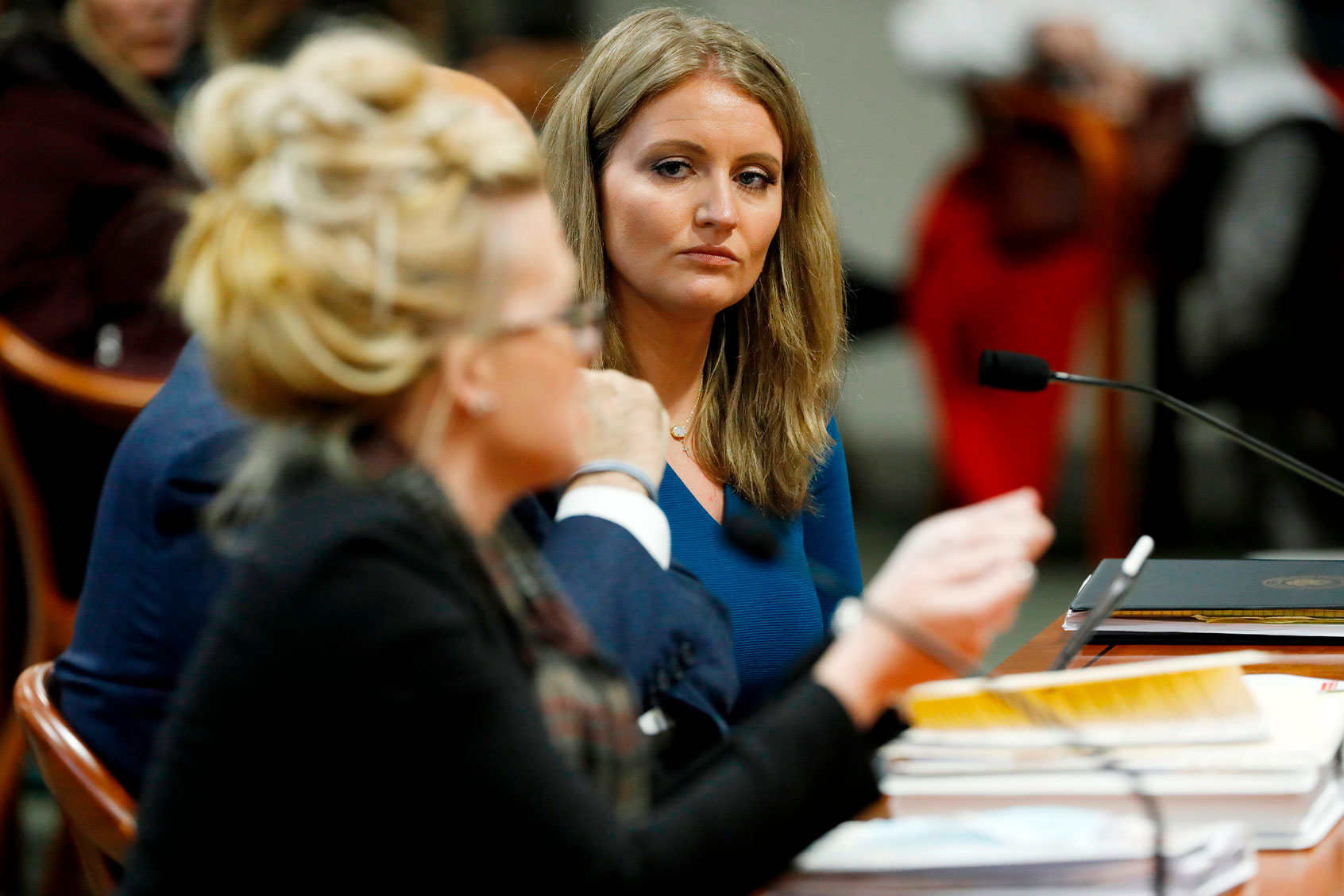A new report from The Messenger found that despite Donald Trump’s extensive array of criminal defense attorneys, the former president’s legal team has essentially latched onto the arguments of other co-defendants who also stand charged with racketeering in the Georgia fraudulent electors case, per new filings.
At least nine of Trump’s recent defense motions in defiance of Fulton County District Attorney Fani Willis’ indictment, The Messenger notes, have co-opted stances taken by his less wealthy co-conspirators. And it may be paying off in his favor — Trump has thus far managed to postpone trial before a Fulton County jury, a move which The Messenger’s Alessandro Marazzi Sassoon and Adam Klasfeld attribute to co-defendants Kenneth Chesebro and Sidney Powell’s success in securing separate trials.
According to Georgia State University law professor Caren Morrison, who has attended recent Trump-adjacent hearings, the ex-president is simply allowing his former allies to “do the heavy lifting.” And, as Atlanta-based criminal defense attorney Andrew Fleischman said, in the majority of legal situations, “That’s totally normal.”
“Just basically let your co-defendant do the work and spend the money and then just be like: ‘Okay. I’ll just add my name to that, please,'” Morrison added. As another legal expert told The Messenger, Trump has essentially adopted a sort of “me-too” legal defense, drawing from the arguments of his former associates.
We need your help to stay independent
Morrison also noted that it behooves Trump to push for delays and let his co-defendants’ trials unspool first, as it could give him the advantage of seeing Willis’ strategy ahead of time. “It’s always helpful if there’s a trial of your co-defendants first, because you get a preview of the prosecution’s case,” Morrison said.
Pushing to have Trump’s case moved from state to federal court, as former White House Chief of Staff Mark Meadows and ex-Justice Department staff Jeffrey Clark have attempted to do, could also pay dividends. As The Messenger observes, doing so would mean a more GOP-heavy jury pool, the removal of a “home field advantage” for Georgia prosecutors, and a more linear arc for using executive privilege as a defense for his alleged 2020 election crimes.
Legal experts have also quashed the notion of any kind of coordinated strategy among the 19 defendants, despite the fact that Trump has primarily absorbed others’ assertions, such as refuting Willis’ use of Georgia’s RICO legislation, her theory of criminal liability in the fake electors scheme, and the First Amendment defense against her case.
“I see no overall strategy so far,” said Georgia defense attorney and former prosecutor Noah Pines. “I’ve had cases with other lawyers where we’ve had those conversations and have done things, towards a common goal. I just don’t see that so far, in anything I’ve read.”
Georgia State University law professor Eric Segall said Trump’s legal squad’s ostensible strategy is a “cheap way of doing it.”
“I don’t know if his lawyers are savvy enough to do this the right way,” Segall continued. “But I think it’s very common, with a lot of different defendants, for defendants to get together and make motions, but that’s not really what happened here.”
However, Morrison said the MAGA attorneys could merely be using a “wait and see” tactic. “It may be a clever way of moving when you don’t have an army of associates at your disposal and lots of other people are kicking up a lot of dust, and he’s just waiting to see how things shake out,” she said. “It is the smart move to sort of let everybody else make all the fuss and do all the motions,” Morrison added, “because every day that goes by, he learns something new.”

